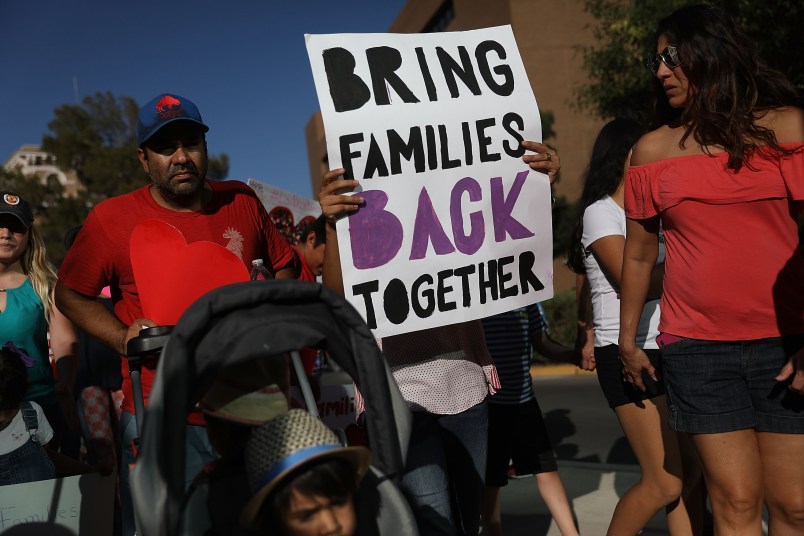The Trump administration is making some remarkable arguments in the on-going child/family separation cases, making it seem like they actually want to slow roll their way into making the separations permanent. As Alice Ollstein explains, the government says it needs more time to determine whether the “putative parents” (i.e., people saying they want their kids back) are in fact real parents (people with a true custodial relationship to the children in question) and further whether are fit parents. In other words, having used the criminal law to meet the very high standard required to separate children from their parents, the government is now arguing that it needs to apply a very high standard to give them back. The government is further arguing that it should not be compelled to reunify families in which parents have already been deported because of the difficulty of doing so.
This is a frustrating and ghastly story because, like many Trump administration sagas, it can be difficult to disentangle the malevolence, incompetence and simple indifference. To some degree, if you separate hundreds or thousands of families and don’t keep good records of who belonged to who, it legitimately will be a complex process getting everyone back together. It is also true that once having taken the step of separating the families and transporting the children hundreds or thousands of miles, the government has some due diligence responsibility not just to hand them back to whoever asks for them first.
But it also seems clear that the government is holding out the specter that substantial numbers of these “putative parents” may be human smugglers or unrelated criminals when there is really no evidence that’s the case. It is, as the judges sometimes put it, something that shocks the conscience that, having first separated these families, the government would now make itself the judge of the parents’ fitness to be parents. It is impossible to read these arguments and not be convinced that the same aggressive and punitive desire to do harm isn’t motivating the nominal reunification process just as it drove the decision to separate the families in the first instance.
The same applies to asking to be let off the hook about parents who’ve already been deported. I don’t doubt that there are cases where it actually will be difficult to reunify … say, an impoverished mother in Guatemala who is hiding from her abusive husband with two children who’ve been transported from Texas to Ohio. But who’s fault is that? It goes without saying that that is going to make unification a real challenge and create a real risk the family will never be reunited. That was obvious going in. But they did it anyway. Certainly the government has a deep, affirmative responsibility to do everything it can to bring these parents and children back together.






